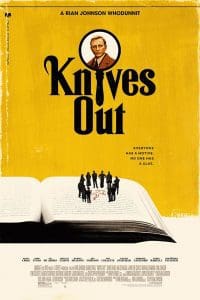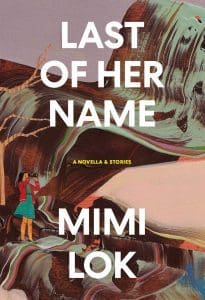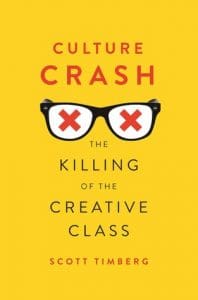Oscar Villalon, Managing Editor: What did Rian Johnson ever do to incur the flying spittle of Star Wars fan boys (fan man-children?) than direct a sequel featuring recognizable relationships and offering emotional heft that didn’t rely on the upswell of a score? And who needs the grief, especially if you already got the millions for the gig?
Knives Out is the kind of movie Johnson should keep on making—cinema rooted in genre but flowering into something unique, something interesting. It’s a whodunnit that tells you whowuzit early on in the story, training its eye on something far more interesting than finding the culprit: looking at what we desire versus what we need, how we’re vulnerable yet capable, and observing how we on some level fail those we love as well as ourselves.
And the movie is a glorious entertainment as well, expert in everything from its set design to its tragicomic performances. It is such a delight that the film’s unexpected metaphor for white privilege and its eventual surrender never fully introduces itself till the very end, making Knives Out that much better a narrative; here’s a fun tale, children, and here’s the barb that comes with it.
Imagine living in any universe, no matter how far, far away, where the truth has no sting. Who needs it?
Laura Howard, Sales & Marketing: I love dessert. It’s the best part of any meal. My favorite being a fine French pastry—thoughtfully put together, surprising and satisfying with each bite. (I can taste a Mille-feuliie as I write this.) And so is the case with Mimi Lok’s Last of Her Name, a book of stories, each one as unique, layered, and dynamic as the last.
The titular story follows a young English girl who fantasizes of becoming her favorite TV superhero in order to escape her problems—such as the bully from school—juxtaposed with flashbacks to her mother’s struggles in Hong Kong during the Japanese invasion of World War II. When Karen and her mother finally (and quietly) connect, remarkable strength arises.
The collection concludes with a powerful novella, The Woman in the Closet. It’s the story of Granny Ng, a homeless woman who secretly moves into the apartment of a young man. Hiding out in the man’s closet, Granny Ng begins assuming housekeeper duties around the apartment. Time passes and eventually the elderly woman is discovered—with Mimi Lok delivering an ending as tough as Granny Ng herself.
This thoughtful collection is delicate in its strength, offering a quiet testament to human connections and the surprises they reveal. Keenly observant, Lok transforms her characters into something both familiar and foreign with a voice all her own. Here’s a book you can savor like a fine French pastry.
Lindsey Pannor, Intern: Small Press Distribution describes Cody Rose Clevidence’s book of poetry Perverse, All Monstrous with a simple sentiment—“[it] tries to embody the utter disaster of evolving consciousness on this godforsaken rock.”
When I first opened the pages to these poems at Moe’s Books this past week, I only wanted to make sense of them. Perverse, All Monstrous experiments with striking visual fieldwork, ranging from fragments nestled within digital error messages to reimagined concrete poetry distilled in a double helix. Beyond their initial draw, these configurations of language pry open established structures of meaning and allow Clevidence to access the core concern of this collection.
Their style reads almost like classic romanticism slung through a muck of digital slang. Were the Earth’s dirt to have a single collective mind, its internal dialogue might sound something like the early foundations of Clevidence’s origin story:
I ache, I arc, I archaic, I arch, I eon, Ion, &on, archembryonic, vie, vision
As minerals ache toward light as crystals crowd toward heat, as motion
The poems teach us simultaneously how to read them and how to embrace their lack of readability. Each word builds on the prior; each poem advances from the last. Beginning with a focus on the vocabulary of the natural entrenched in the design of the digital, poems such as the one excerpted above slowly build Clevidence’s revision of the bloom of existence. Their words flow like a time-lapsed collection of photographs, making verbs of natural nouns and constructing landscapes in a God-like fashion. This new space soon departs from the natural, suddenly confounded by the digital:
I told u
2 lay down w yr golden polymer w yr robes of interstitial dew
w yr robotic lens sailing outward in the ringing symbiology of
noise
As Clevidence grapples with reconciling worlds which no longer feel compatible, they eschew my need to make sense and replace it with a new system entirely. They write as though they themselves—their own body—contains the experiment of human digitality. In this time of truth’s decline, their reexamination of how reality claims its status strikes me as ingenius. Especially considering the chapbook’s namesake and epigraph (a short passage from Milton’s Paradise Lost), I am able to say with confidence that Clevidence’s ingestion of man’s actuality attempts to recapitulate itself with a timeless universality.
Laura Cogan, Editor: With the devastating news of Scott Timberg’s death this week, I was drawn to revisit my much-underlined copy of his excellent book, Culture Crash: The Killing of the Creative Class. “Yes” I had written in the margin in several places. Checks and asterisks are scattered throughout.
These marks speak to how gratified I felt when I first read this book. I vividly remember how alarming and yet also confirmatory it was to hear Timberg articulate with clarity and such a wonderfully detailed knowledge of cultural history the ideas and worries that had been percolating only vaguely in my own mind. In characteristic fashion, he connected cultural dots that never would have occurred to me, too. The effect was sobering but also inspiring–like a serious conversation with a brilliant friend.
Here’s one passage I marked:
If we’re not careful, culture work will become a luxury, like a vacation home. Just as a democratic nation benefits from a large, secure, and informed middle class, so too we need a robust creative class. Painting a landscape or playing a jazz solo does not guarantee that an individual will become nobler or more virtuous. But a broad-based class making its living in culture ensures a better society.
I did not know Timberg, but I was and am grateful for his work and for this book in particular, whose message has only grown more urgent in the years since it was published. Anyone who cares about American culture should read it.




